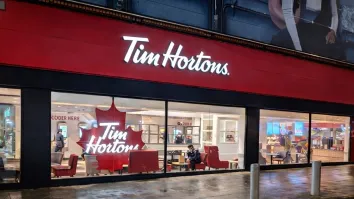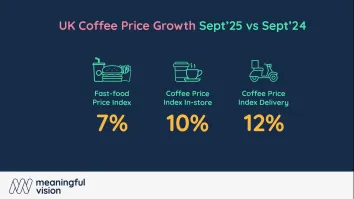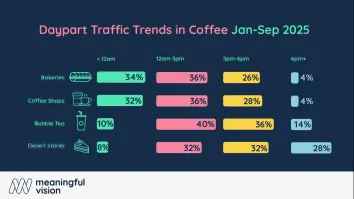
Inflation seen in months ahead due to “chronic” labour shortages, “insufficient” stock
Some operators are already setting up their own central production kitchens to take pressure away from individual sites.
A combination of chronic labour shortages, insufficient manufactured stocks and post-Brexit challenges on imports are creating disruption and inflation across the foodservice sector, according to the latest CGA Prestige Foodservice Price Index.
The monthly report revealed problems having intensified throughout food and drink supply markets in July, with shortages of HGV drivers a particular concern.
The Index indicates further year-on-year inflation in prices in most food and drink categories during the month, and forecasts more increases over the rest of 2021.
Hospitality’s return towards pre-pandemic trading levels, wage inflation throughout the supply chain and further Brexit impacts are all likely to feed through the chain into higher prices, it said.
“Many” food businesses are also experiencing difficulty in securing chef labour, leading to increasing numbers reducing menu ranging or seeking prepared products from suppliers. Some are also setting up their own central production kitchens to make the most of available labour and take pressure away from individual sites, the report noted.
“Our 12-month rolling forecast predicts an increasingly strong rise in food and drink prices, and many operators are now intensifying their focus on the management of their supply markets and the simplification of their food production. With the removal of the VAT reduction and a wide range of rising costs the balancing act of menu pricing and cost management to deliver optimum cash will be tougher than ever,” Prestige Purchasing CEO Shaun Allen said.
James Ashurst, client director at CGA, added: “The foodservice sector is bouncing back well from the turmoil of COVID, and consumer demand for hospitality experiences remains strong."
"But labour shortages and price inflation are threatening the recovery, and it is particularly frustrating that most of the challenges are out of businesses’ own hands. With few solutions in sight in the short-term, they are going to have to be agile and resourceful in their purchasing and supply arrangements in the run-up to the crucial Christmas period.”

























